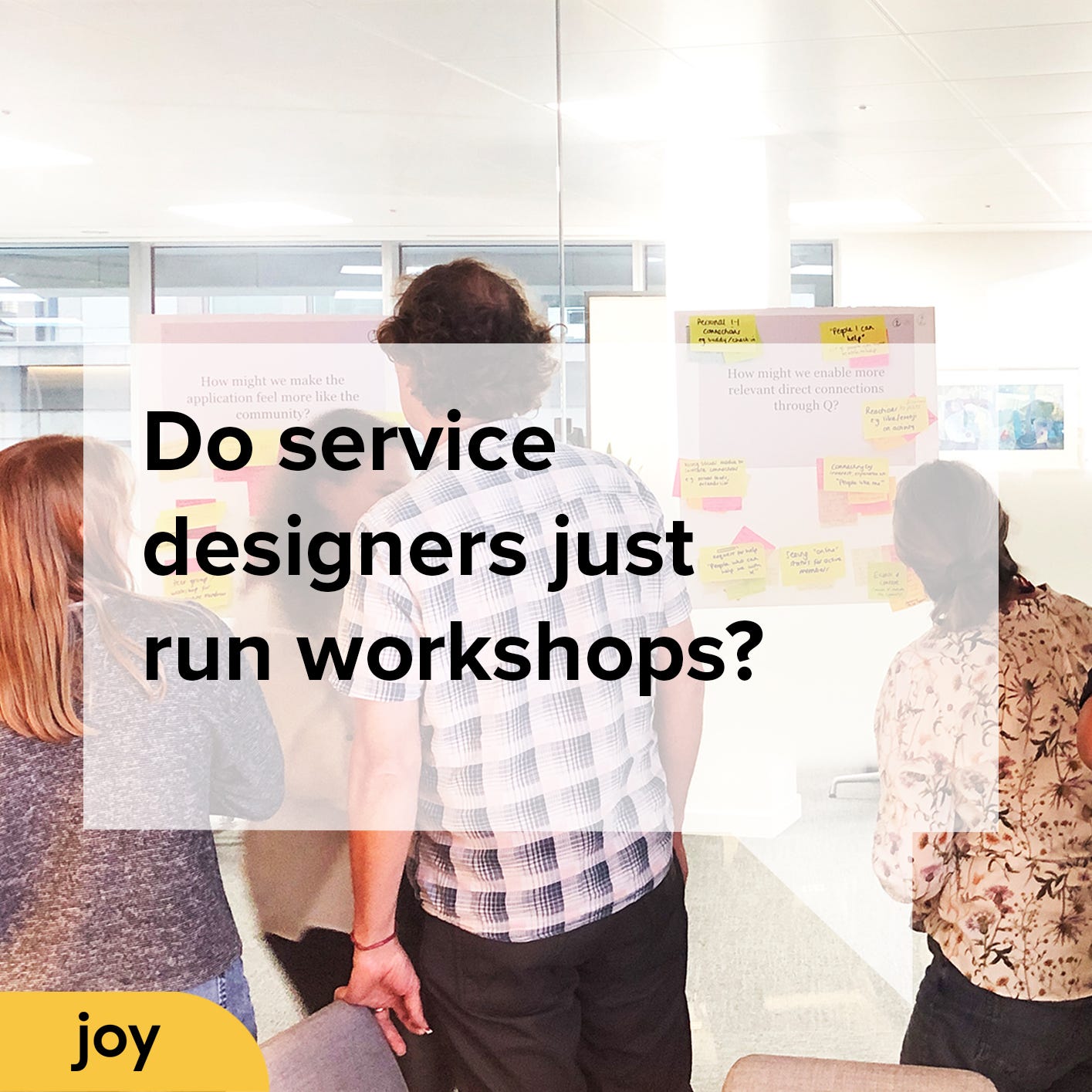A lot of people, especially people looking to move into the service design industry, ask me if service designers just run workshops. I’m running a lot of workshops at the moment so this is on my mind.
I mean, the short answer is no, but that wouldn’t make for a very long weeknote this week would it, so I’ll elaborate.
I think service design has gained this reputation mainly because a lot of our practice is quite intangible so often people represent what they do through images of collaborative working sessions or workshops. I’ve done it myself when I’m lacking images for a case study for example. Add to this the fact that people associate post-it notes with service designers and people will draw their own conclusions.
At this point I should say that as a service designer I do run a lot of workshops and I would count facilitation as one of my strongest skills. I think one of the main reasons for this is that when you’re designing services (well) you need lots of different perspectives. An end-to-end service will often cut across different organisational silos. You’ll need input from people with different skillsets and you’ll need to learn from the experiences of both users of that service and staff. That’s a lot of people!
While workshops are on one hand a practical choice to gain input from a range of different people without having to have lots of 1:1 conversations, they are often also an exercise in alignment and building shared understanding. One example that will always stand out for me was running a workshop at NHSDigital to share the end-to-end design of the Covid-19 vaccination booking service, only to have 100+ people attend. While this turned into more of a show and tell than a workshop, it shows the scale of involvement you sometimes need when designing a service that’s part of a complex system.
Another example that stands out to me was running a blueprinting workshop with an organisation in the education sector. Just exposing the end-to-end service across organisational silos allowed people up and down stream from each other to understand what users were experiencing during different parts of the journey and dig into some knock on effects that were occurring between teams.
So we do run workshops, often rather well. But that’s not all we do. I’m not going to turn this piece into a run down of what a service designer does and what service design is. I’ll point you to this piece by Sarah Drummond for that.
Coming back to workshops. I’ve been conscious that a lot of my recent work has turned into a series of workshops and I’ve been wondering why, and also how I can challenge myself in this space.
Something I’ve tried with one project is to try and move away from the facilitated workshop format, with me leading, and bill the sessions as working sessions with me guiding but having less pre-planned and over engineered exercises. I love a workshop, don’t get me wrong, but this is a project about prototyping and what we needed most was time and space to get into deeper conversations about a solution we were exploring and how to run an experiment around it.
The other thing I’m doing is developing my practice in this space. I’m starting by investing in training to explore a wider range of idea generation techniques, something I’ve got a bit rusty in recently. But I’m also keen to invest in my facilitation skills and ensure I can continue to develop in this area while I’m self employed and have fewer people to learn from.
I’m interested in others’ experiences of building workshopping into their service design practice. What works, what doesn’t? Where are you looking to develop? Should we try to shift this perception or does it not really matter?




